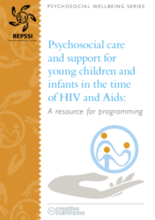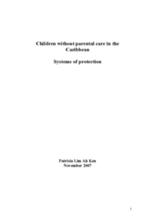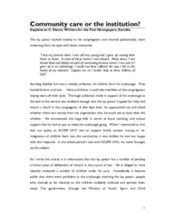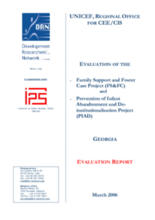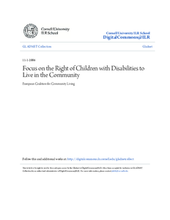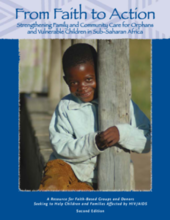Displaying 241 - 250 of 312
Clear programme guidance on psychosocial support, with a special focus on infants and young children. Excellent explanation of psychosocial support models.
A regional assessment of responses to children outside parental care in the Caribbean. Extensive research on successful examples of alternative care. Includes recommendations and lessons learned.
A study of endogenous community-based responses to the needs of children affected by HIV and AIDS, and how these might be supported in KwaZulu-Natal.
A research study exploring planning for children by their terminally ill parents.
Brief article observing the proliferation of orphanages in Zambia. Points to several models of community-based care as alternatives better able to address the rights and needs of children.
Overview of institutional and alternative care for Children in Need of Special Protection in Vietnam
Evaluation of two alternative care programmes in Georgia. Focus on contributions towards the construction of gatekeeping systems for alternative care services. Includes detailed lessons learned and recommendations.
Examines a community-based care program for children living with HIV in Haiti called Arc-en-Ciel. Includes an overview of services provided (residential care, home based care, and community mobilization) and lessons learned.
Advocates for the right of children with disabilities to live in the community. Provides recommendations on how to ensure a successful transition from institutional to community-based care. Focuses on the importance of family support and the right to education.
A tool to encourage donors to fund community programs that keep children in family care, rather than simply funding orphanages. Describes the many strategies being used to invest in community-based care, and contains specific program examples.

